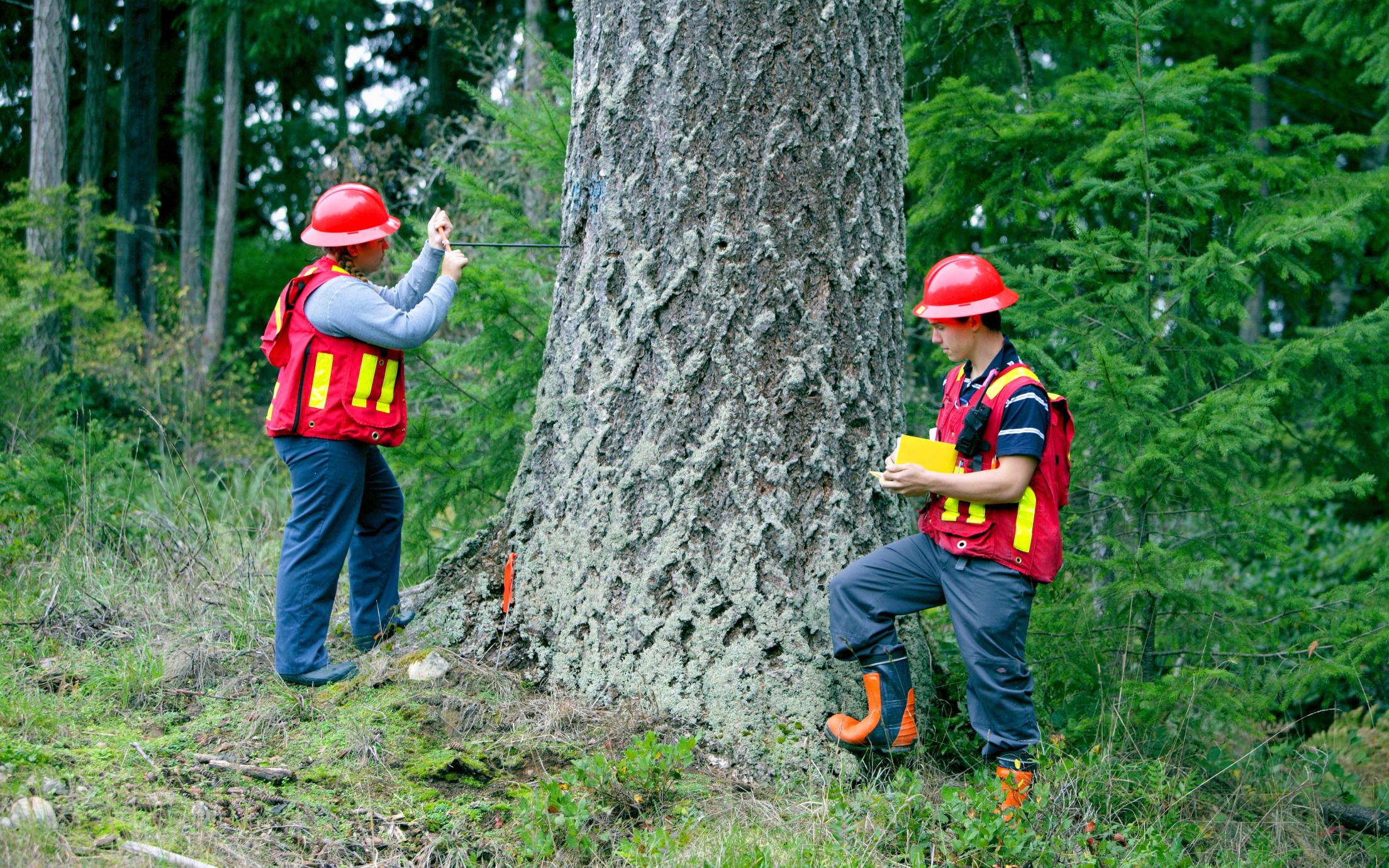Areas of study include
- Biodiversity
- Computer Applications
- Ecology
- Field Skills
- Fire Science
- Forest Health
- Harvesting
- Mapping & Surveying
- Policy & Legislation
- Recreation
- Silviculture
- Soil Science
- Transportation systems
- Tree Physiology
- Visual Quality
- Water and Fisheries
- Wildlife
Link to Official VIU Calendar Course Descriptions
In the Forestry Program, students will study a range of subjects that will prepare them for a variety of careers in forestry. Many of the classes are taught in the forest … literally – in the VIU Forest. This allows students to learn about and practice forestry hands-on.
Forestland Resource Management
The full spectrum of forest resources is explored. Extensive use is made of experts in the natural resources sector. Subjects include fish, wildlife, recreation, aesthetics, First Nations/heritage values, karst, water quality, biodiversity, and non-timber forest products. Forest policy and legislation are also examined as they guide forest management in BC.
Forest Ecology & Silviculture
Courses in this group provide the ecological foundation upon which sound forestland management decisions can be made. Fundamental is the study of botany (with a focus on tree physiology and forest plants) and soils (the ultimate resource for forests). Proper ecological site classification is critical for good forest management decisions. Silviculture examines the art and science of the establishment, growth, composition, health and quality of forest stands.
Engineering & Harvesting
One of the most effective ways to ensure forestland is managed properly is to be the one making the decisions regarding what gets harvested or protected. The process of harvesting trees and delivering them to the mills is examined. A critical balance is required between ecosystem based management (EBM), logistics and economics. Topics include the layout and design of resource roads, harvesting systems, logging and log transportation.
Forest Protection & Health
As is evident by the recent mountain pine beetle outbreak, forests can be negatively impacted by natural causes. The various agents that threaten the health of forest trees are studied in the classic breakout of three courses: fire, disease and insects. Each course begins with the basic science of the disturbance agents , including their ecological role, and then continues with practical management techniques for minimizing impacts.
Forest Measures & Assessments
Critical to management of any resource is an accurate assessment of how much you have. This course group includes timber cruising (basic tree measurements through to call grading and net factoring of standing timber), plantation assessments, post-harvest surveys, and forest inventory that includes a broad spectrum of resources (e.g. wildlife habitat, stream reach classification, and visual quality.
Mapping & Traversing
These courses cover fundamental skills required for anyone who works or recreates in the back country. Essential is the ability to "read" maps and air photos in order to determine your location and how to navigate to where you next want to go. Also critical is the ability to create accurate maps based on your observations. Courses in this grouping cover surveying skills, mapping, air photos and GIS.
Computer Applications, Mathematics & Communications
Forest professionals make extensive use of technology in all aspects of the job. These include laser range finders, GPS, GIS and handheld computers. Also fundamental to the profession are the everyday skills in math and communications. Members of our Forestry Advisory Committee rate skills in these categories very highly when they consider hiring candidates for any job position.
Year 1 |
|
Fall |
Spring |
Year 2 |
|
Fall |
Spring |
|
|
